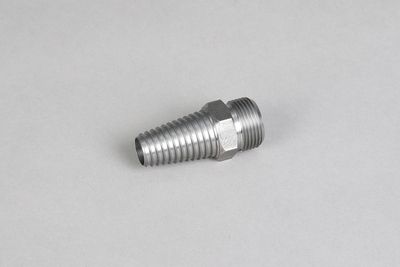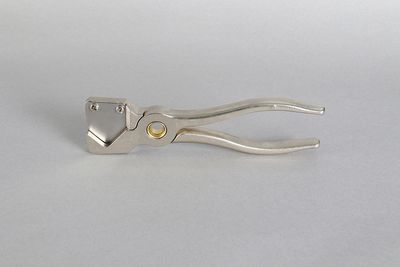Injection hose system
More InformationsFilter
2 Variants
3 Variants
3 Variants
2 Variants
3 Variants

INJECTION HOSE system
Since the early 70s injection hose systems have been used alternatively or in addition to joint profiles and metal water stops. It is an injectable joint filler in tube or channel form. Subsequent leaks can be sealed by injecting polyurethane resin, acrylate resin, cement suspension or cement paste.
Material to be used
- Epoxy resin
- Polyurethane
- Cement suspension
- Acrylat gel)
Aims of application
- Well-planned sealing, e. g. in addition to a joint profile or metal water stop
- Well-directed sealing by additional injection


Demands on injection hose systems
- Adequate cross section and passage of the injection canal
- During concreting no cement slurry may enter the injection canal
- Even distribution and discharge of the injection material over the entire length of the injection hose
- High dimensional stability, no kinking of the system when changing the direction
Advantages
- Easy installation and flexible adaptation to the joint system
- As internal sealing for construction joints in concrete components with high water penetration resistance
- Sealing additional to joint profiles or metal water stops
- Possibility of sealing construction joints in concrete and reinforced concrete structures
- Reasonable, technical method for preventive as well as additional sealing
- Injection hose systems can also be installed wherever the installation of joint profiles or metal water stops is extremely complex for structural reasons
- The suitability of injection hose systems is documented by national technical approval (Certificate no.: P-SAC 02 / 5.1 / 15-252)
Example of application
- Injection hose systems against soil moisture and non-pressing water
- Pressing water up to a water pressure of 2 bar
- Creation of a water-impermeable construction joint in concrete structures by scheduled injection
- Use in e. g. hydraulic structures, sewage treatment plants, underground garages, tunnels
Information
A check list for site "Supervision injection hose systems" and an injection journal can be found in the annexe of the DBV information paper:- Injection Hose Systems and Swellable Sealing Strips for Construction Joints, edition 2010
- German Concrete and Construction Technology Association, www.betonverein.de
- The model administrative regulation Technical Building Regulations (MVV BT) 2015 edition 15 January 2020 of the DIBt and its implementation in the respective federal states should be taken into account in the plannung and use of injection hose systems
Installation
The injection hose shall be fixed tightly at to the hardened concrete building component element by continuous anchoring fixing so that it cannot float on fresh concrete. Normally the injection hose is fixed with special fastening clamps spaced about 15 cm, however, the spacing has to be adjusted to the conditions on site. In the area of crossing hoses lay them so that they cannot block each other (e. g. by mutual injection).
The injection material flows out of the injection hose at low pressure between 0.5 to about 5 bar

Information about installation
- Length of injection hose: about 8 – 10 m
- The injection hose has to lie flat on the first section of concrete to avoid any reduction of cross section
- Fix injection hose, e. g. with fastening clamps, the spacing of the injection hose to the outside of wall should be ⅓ to ½ of the wall thickness
- In areas where two hoses meet they shall overlap each other by about 15 cm and lie parallel spaced about 5 cm
- Indicate the location of the injection hoses in the drawings






















